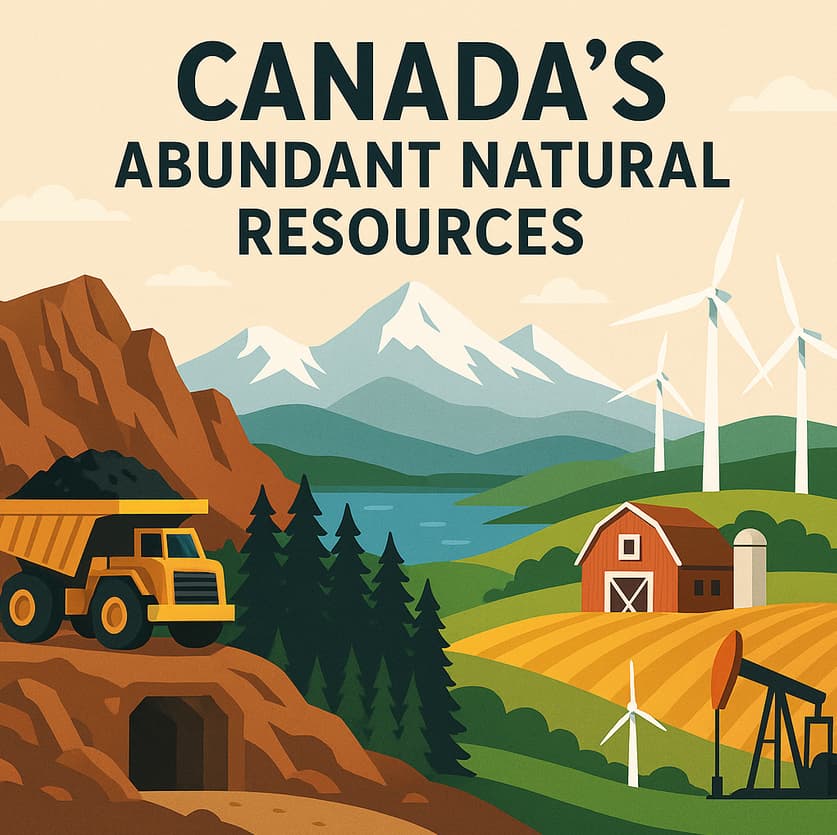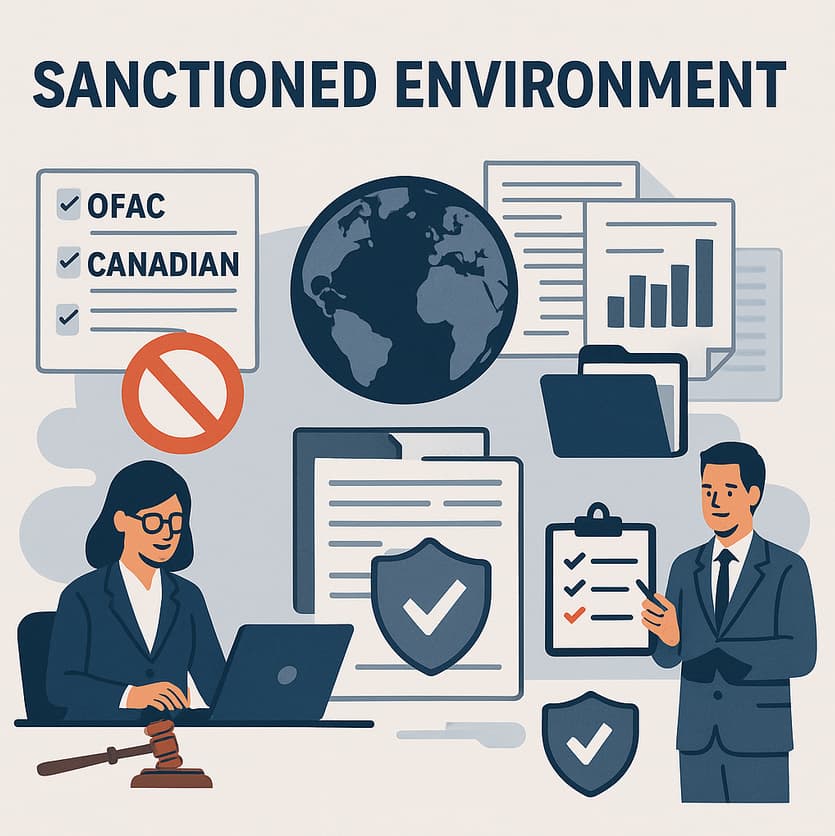Understanding Capital Markets in Canada and Their Legal Landscape

Canada’s abundant natural resources—minerals, oil, gas, and clean energy potential—are a cornerstone of its economy. But developing these assets requires large-scale, long-term investment. This is where capital markets come in. For decades, they’ve acted as a financial backbone for the resource sector. Today, however, navigating these markets involves more than just financial planning—it demands awareness of complex legal environments, sanctions compliance (including OFAC), and effective legal support.
This article explains how capital markets function in Canada, particularly in relation to the resource sector, and highlights the legal and regulatory challenges companies face in securing investment.

What Are Capital Markets and Why Do They Matter for Canada’s Resource Sector?
Capital markets are systems through which companies raise funds by issuing stocks, bonds, or other securities to investors. In Canada, they serve a vital role for capital-intensive industries like mining and energy, where upfront costs are high and returns are long-term.
Think of capital markets as the bloodstream of economic development—they carry essential financial resources from investors to businesses that need them. In the case of the resource sector, they help finance exploration, equipment, environmental compliance, and technological innovation.
Key Features:
- Stock Exchanges: Toronto Stock Exchange (TSX) is a global hub for mining companies.
- Private Placements: Resource firms often raise capital through private offerings to accredited investors.
- Debt Instruments: Companies issue bonds to secure long-term capital for infrastructure and operations.
Who Participates in the Canadian Capital Markets?
Several players contribute to the functioning of capital markets:
| Role | Description |
| Issuers | Companies, especially in mining and energy, that need funding. |
| Investors | Institutional and private investors seeking returns. |
| Underwriters | Banks and firms that help companies issue securities. |
| Legal Advisors & Compliance Officers | Professionals ensuring regulatory compliance and legal clarity. |
In modern capital markets, the role of legal experts has expanded. Due diligence, regulatory approval, cross-border investment checks, and sanctions compliance now define the process of raising capital—particularly under regimes like OFAC (Office of Foreign Assets Control).
Traditional Fundraising Methods for Resource Companies
Canadian resource firms typically raise capital through:
- Equity Financing: Issuing shares to public or private investors.
- Debt Financing: Issuing corporate bonds or arranging loans.
- Joint Ventures: Partnering with international firms for mutual investment.
However, the geopolitical landscape has made things more complicated.
How Sanctions and Legal Frameworks Influence Fundraising
International sanctions, especially those enforced by OFAC in the United States, can block investors or freeze funds if counterparties are listed in prohibited jurisdictions. Canadian companies must also follow national laws such as the Special Economic Measures Act (SEMA), which mirrors many OFAC restrictions.
This dual-layered compliance environment creates potential barriers:
- Delays in transaction approval
- Freezing of investment funds
- Reputational risks for partnerships with sanctioned entities
Example:
A Canadian energy company seeking funding from a foreign investor may face delays or rejections if the investor is connected to a sanctioned country—even if the funding seems legitimate.
The Role of Legal Support in a Sanctioned Environment
In a sanctioned environment, legal support plays a critical role in ensuring the legality of financial operations. Lawyers conduct due diligence on investors and partners against OFAC and Canadian sanctions lists to eliminate the risk of blocked transactions. They structure deals in a way that avoids violations of sanction regimes, including selecting appropriate jurisdictions and managing capital flows.
Special attention is given to disclosure: legal teams ensure that corporate reports comply with regulatory requirements, especially in cases involving potential links to sanctioned regions. In international operations, they coordinate legal actions across multiple countries and anticipate conflicts between different legal systems.
Within companies, compliance officers work alongside legal professionals to build monitoring and reporting systems, provide staff training, and establish response procedures. Their task is to ensure documented compliance with the law and readiness for regulatory audits.

Why Capital Market Access Is Crucial for Innovation and Growth
Beyond operations, capital markets enable Canadian resource firms to innovate. Whether it’s investing in clean energy solutions, improving safety, or meeting environmental standards, external funding makes it possible.
However, innovation requires trust—and that trust depends on a company’s legal transparency and compliance record. Investors are unlikely to back firms with questionable legal practices or connections to sanctioned actors.
Benefits of Capital Markets—and How Lawyers Help Protect Them
| Benefit | Legal Risk | Legal Solution |
| Long-term financing | Sanctions exposure | Pre-deal due diligence |
| Market reputation | Regulatory non-compliance | Legal audits and training |
| Access to international investors | Cross-border legal conflicts | Strategic structuring & OFAC expertise |
Conclusion: Legal Awareness Is Key to Capital Market Success
Capital markets remain critical to Canada’s ability to tap into its natural wealth. But as the legal environment grows more complex, companies must match financial strategy with regulatory awareness. Understanding OFAC rules, Canadian sanctions, and the evolving demands of global investors is no longer optional—it’s essential.
For businesses, investors, and even students entering this space, legal knowledge and support can mean the difference between growth and stagnation. Engaging qualified legal professionals early in the fundraising process ensures smoother navigation of capital markets—and minimizes risks that can derail even the most promising ventures.
